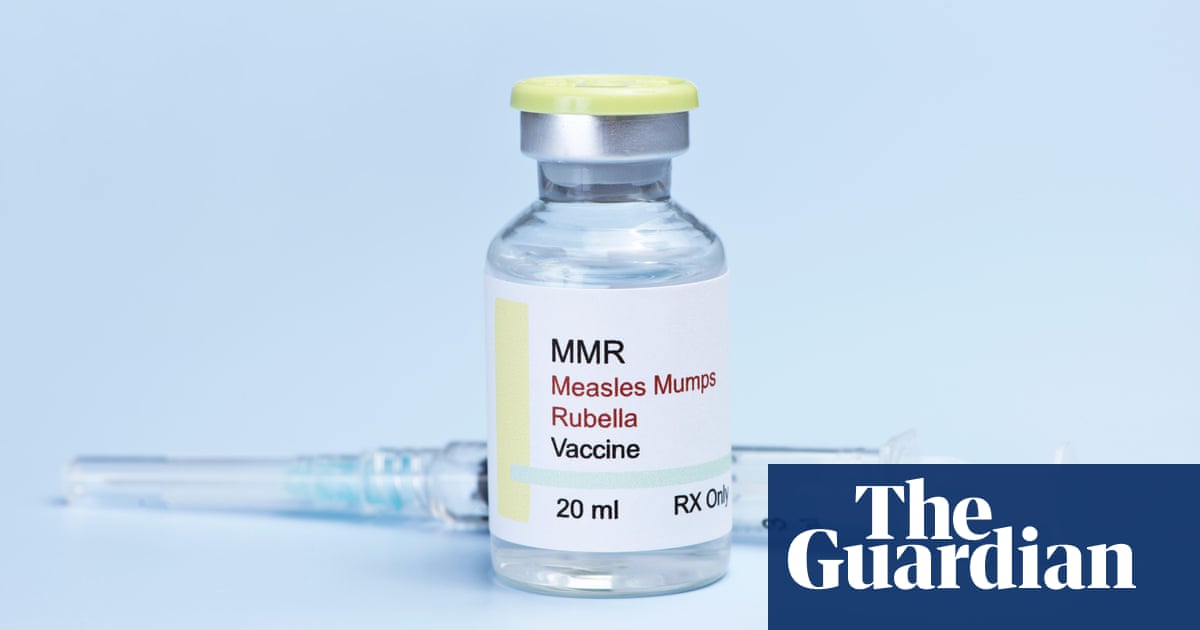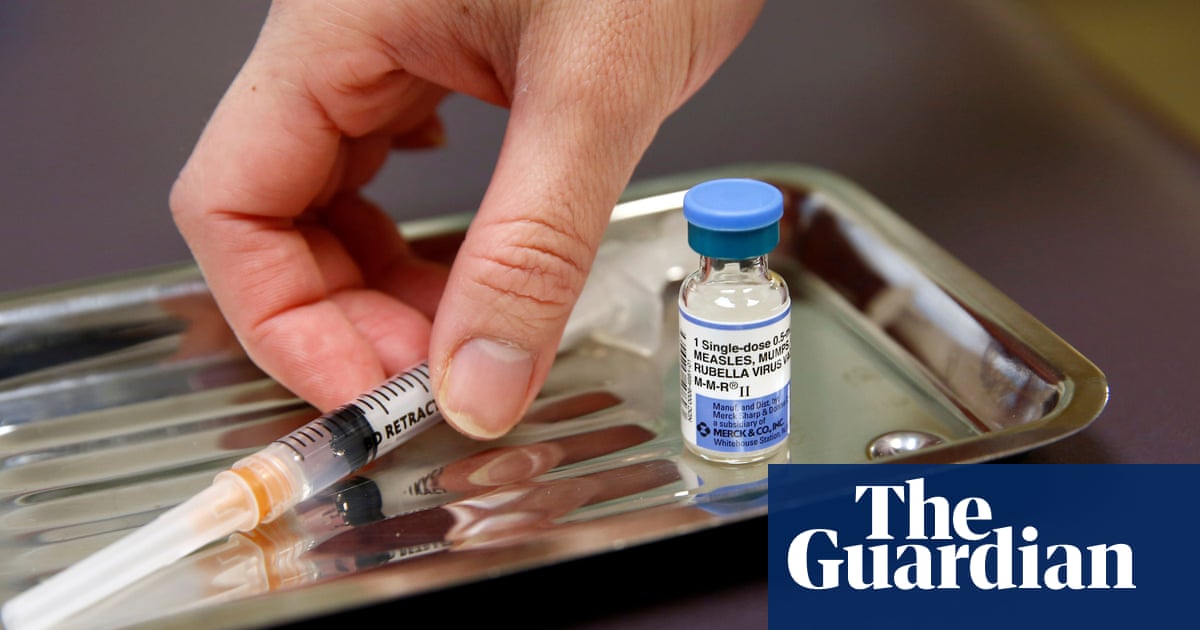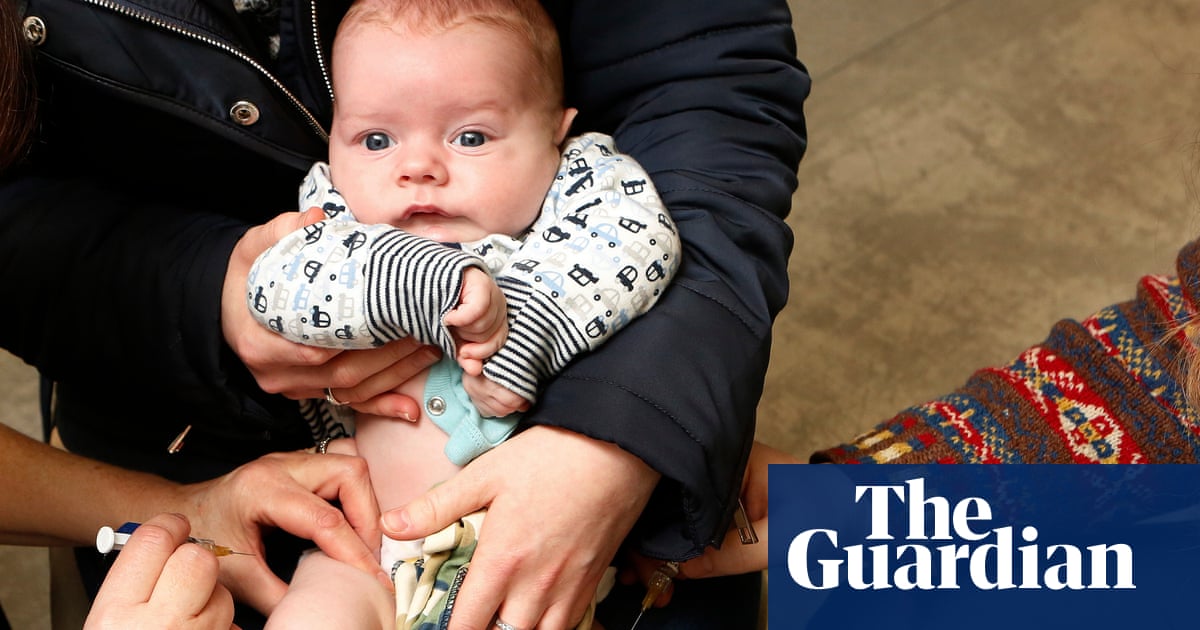
Good morning. Before a vaccine for measles was created, there were regular epidemics that caused approximately 2.6 million deaths worldwide each year. In England, the year before the vaccine was introduced in 1968, there were 460,000 cases of measles – by the 1980s that number had dropped to about 10,000 suspected cases a year.
To drive home the importance of getting protected from this highly contagious infection, the government implemented a national vaccination campaign in 1994 – the impact was immediately felt. There have been no measles epidemics since 1995 and in 2017, the World Health Organisation (WHO) declared England measles-free. So, how, in just seven years, is measles back at the top of the health agenda?
A combination of factors means measles cases are rising rapidly in England and Wales. Figures from NHS England suggest more than 3.4 million children under the age of 16 years are unprotected against measles, mumps and rubella.
The steady decline of MMR vaccine uptake has made measles outbreaks increasingly common. Certain regions are worst affected, particularly the West Midlands, where more than 300 cases were reported between 23 October and 15 January. After these outbreaks, the UK Health Security Agency (UKHSA) declared a national incident and warned that further outbreaks could spread across the country, even though 85% of children nationally have had their second dose of the MMR vaccine. This is because, to ensure herd immunity, 95% of the population has to be fully vaccinated.
To get a sense of why this is happening, for today’s newsletter I spoke with Guardian science correspondent Nicola Davis. But first, the headlines.
Five big stories
Energy | More than 2 million people across the UK will be cut off from their gas and electricity this winter because they cannot afford to top up their prepayment meters, according to Citizens Advice.
Immigration and asylum | Rishi Sunak’s plan to deport asylum seekers to Rwanda has received its first parliamentary defeat after the House of Lords voted for a motion that sought to delay ratification of the new treaty until the government can show the country is safe.
Weather | Two people have died and tens of thousands were left without power after Storm Isha wreaked havoc across the UK with gusts as high as 107mph.
Middle East | The White House has called on Israel to protect innocent people as Palestinian officials said the Israeli military had stormed al-Khair hospital in Gaza and placed another, al-Amal, under siege.
UK news | A coroner has ruled that a 13-year-old black boy, Christopher Kapessa, was deliberately pushed into a Welsh river by an older white boy as a “dangerous prank”. But the coroner, David Regan, said there was no evidence that the child who pushed Christopher had intended to cause his death or that there was a racist motive behind it.
In depth: ‘Measles is a nasty infection, so this is serious’
Measles is a highly contagious infection. According to the NHS one person can infect nine out of 10 unvaccinated close contacts. The infection can have a number of serious complications, including pneumonia, blindness, seizures and meningitis. Babies under the age of one, young children, pregnant women and immunocompromised people are vulnerable to the more aggressive side effects.
When did this start?
Though the problems surrounding MMR vaccine coverage have become particularly amplified in recent months, it is not a new issue. In 1998, former physician Andrew Wakefield put forward a widely and since comprehensively debunked hypothesis linking the MMR vaccine to autism. “What we saw after that was a drop in uptake because people were worried about this false link,” says Nicola. “It meant that quite a lot of people born in that time did not have two doses of the vaccine, leaving a lot of late teens and young adults vulnerable to measles in the late 2010s.” Before the Covid pandemic hit, there were a number of outbreaks of mumps and measles in secondary schools and universities, in part because of Wakefield’s hypothesis.
There has also, separately, been a slow decline over the last decade in vaccine uptake, meaning that young children are now also vulnerable – 60% of cases in current outbreaks are assumed to be in children under the age of 10. Any drop in uptake is a problem.
“Measles is a nasty infection, so this is serious,” Nicola says. “About one in five kids who get the disease have been admitted to hospital for treatment. It can cause very serious infection – about one in 1,000 people get inflammation of the brain and about one in 5,000 in countries like the UK can die”.
Why are people not getting vaccinated?
Though vaccine misinformation has played a role in the decline, it is not the only factor. “Most parents do get their children vaccinated, as we can see from the figures,” Nicola says. Parental confidence in vaccines is high: a 2022 survey conducted by the UKHSA found that 95% of parents agree vaccines work, 91% think they are safe and 90% agree they trust vaccines – so what is stopping parents from getting the jabs into their children’s arms?
The first issue Nicola pointed out was access and flexibility when it came to booking the appointment initially. She also noted that underinvestment in the NHS has meant that “we don’t necessarily have systems where people are being chased up, reminded and given that extra encouragement to get this done”.
The irony of the measles conundrum is that the efficacy of the vaccine has meant that most people are not aware of how serious the infection can be, and therefore there is not much urgency when it comes to getting vaccinated. “Most of us will never have actually seen measles and could mistakenly think that it is just a bit of a rash that clears up after a few days, not realising that this is a very serious and potentially fatal disease,” Nicola says.
During the height of the pandemic, many parents were also nervous or hesitant to go into hospitals or other health settings to get children vaccinated for fear of getting infected with Covid and others simply did not know that these routine vaccinations were still happening at that point. “So there’s a melting pot of reasons” for the decline, Nicola says.
Fighting the infection
The government has announced a national campaign to encourage parents of children between the ages of six and 11 to make an appointment with their GP to administer any missed MMR vaccines. The campaign will also target a million people in the West Midlands and London between the ages of 11 and 25 – particularly as measles can be more serious if it is contracted in adulthood.
If the government and the NHS deal with all of the various components of this problem, they can stop the infection from becoming a full-blown health crisis. Conversely, any level of complacency will exacerbate the problem.
“We have a safe and highly effective vaccine, we shouldn’t have measles in the UK. So it’s about putting resources into getting jabs into the arms of those who are unvaccinated”, Nicola says.
What else we’ve been reading
What does our heart rate really tell us about our health and state of being? Joel Snape talks to experts to find out. Nimo
Is this heralding a new era for India? The prime minister, Narendra Modi, has opened a controversial Hindu temple built on the ruins of an ancient mosque in a move that has been viewed as seeking to transform India from a secular democracy into a Hindu state. Nazia Parveen, acting deputy editor, newsletters
Matthew Cantor asks whether we are taking hypochondria seriously enough after a Swedish study found that those with long-term, serious anxiety over health die earlier than others. Nimo
In our latest instalment on Latin America’s water wars, Paloma de Dinechin meets the people of the Ixquisis valley who thought their most valuable resource would help lift their villages out of poverty. Instead, to their horror murder and violence followed. Nazia
I’ll admit it: I love having a quick look into people’s windows as I stroll by, especially in fancy neighbourhoods. What can I say, I’m a curious being. For the Atlantic (£), Michael Waters turns the focus on to the wealthy who fling open their curtains, allowing people to gawp at their showroom-like homes. Nimo
Australian Open | So far in Tuesday’s play, Coco Gauff of the US has beaten Ukraine’s Marta Kostyuk 7-6(6) 6(3)-7 6-2 to reach the final four of the women’s singles for the first time. Earlier, Cameron Norrie finished happy with his game’s evolution as he narrowly lost 7-5, 3-6, 6-3, 4-6, 7-6 (3) against the sixth seed Alexander Zverev in the fourth round. And three games into her contest with Linda Noskova, Elina Svitolina was forced to retire with a back injury while trailing 0-3. The women’s draw quickly became a free-for-all as Dayana Yastremska, a Ukrainian qualifier, picked off Victoria Azarenka, a two-time champion, 7-6 (8-6), 6-4.
Football | The Africa Cup of Nations hosts Ivory Coast are on the brink of a humiliating exit from their own tournament after a shock 4-0 defeat by Equatorial Guinea who were confirmed as the surprise group winners ahead of Nigeria, who beat Guinea-Bissau 1-0. Ghana are also set to miss out on the last 16 after drawing 2-2 with Mozambique, while Egypt scraped through despite being held to draw by Cape Verde in Group B.
Cricket | Virat Kohli has withdrawn from the first two of India’s five Tests against England for personal reasons, with the Board of Control for Cricket in India asking media and fans “to respect his privacy and refrain from speculating about the nature of [those] reasons”.
The front pages
“Medics urged not to report illegal abortions to police” is the Guardian’s print lead today. The Financial Times splashes with “Narrow voter ID rules expose Tories to claims of bias, elections chief warns”. “Breakthrough Alzheimer’s blood test ‘will bring cure closer’” – that’s the Daily Express while the Daily Telegraph has “Alzheimer’s blood test revolution for over-50s” and the Times says “Blood test can detect early sign of Alzheimer’s”. Story of the moment for the Daily Mail is “Starmer wades into culture wars – on the side of the woke” (he criticised the Tories’ “war on” the aforementioned). “Weight loss horror” – the Daily Mirror covers the “Devastating” consequences of a woman’s botched surgery in Turkey. A counterpoised story in the Metro: “Fat-busting balloon pill on NHS”. “UK’s worst storms in a decade ‘will become the norm’” warns the i.
Today in Focus
New Hampshire primary: the last chance to stop Trump?
After the withdrawal of Ron DeSantis from the race, only Nikki Haley now stands between Donald Trump and the Republican nomination for the presidency. David Smith reports from Manchester, New Hampshire
Cartoon of the day | Ben Jennings
The Upside
A bit of good news to remind you that the world’s not all bad
Hurtling towards her 40s as a single mother, relying on benefits to support her three children, Zoe Smith, made the decision to quit the UK and “return” to Grenada, the island her paternal and maternal grandparents had left in the 1950s.
“If I couldn’t make it work in the UK, what chance did my children have in a country in which, on every indicator – from education to employment, health to housing – the odds of success as black citizens were clearly stacked against them?”
Smith decided to leave the UK in the middle of the pandemic and when she finally landed after many cancelled flights she describes feeling a sense of overwhelming relief. Moving to Grenada has thrown up its challenges but her ultimate motivation is to raise her children in an environment where they could feel that freedom is their birthright.
Sign up here for a weekly roundup of The Upside, sent to you every Sunday
Bored at work?
And finally, the Guardian’s puzzles are here to keep you entertained throughout the day – with plenty more on the Guardian’s Puzzles app for iOS and Android. Until tomorrow.
Quick crossword
Cryptic crossword
Wordiply












